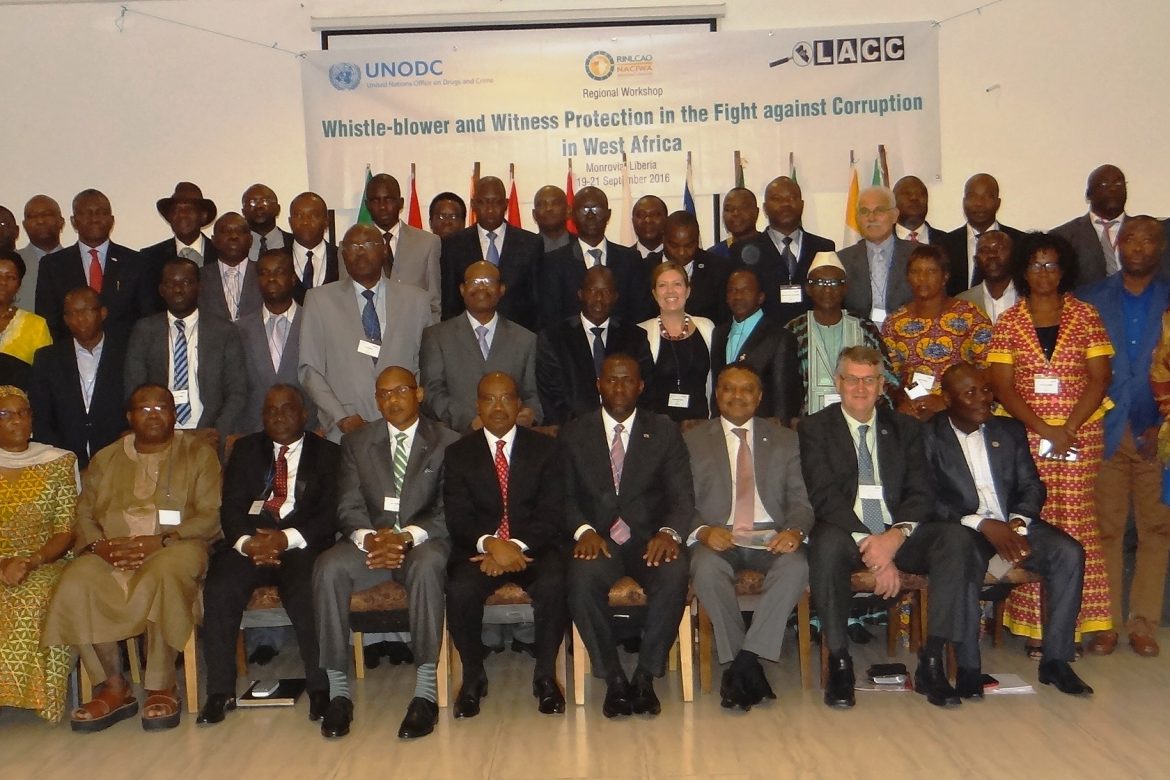This material belongs to: Front Page Africa.
Monrovia – It’s just a plain door, but when you look closely, you see how hi-tech it is. A thumbprint and key card gets you access. A blast of cool air greets you when you open the door.
You’re in the control room – Computers, scanners and other small, but powerful, machines perch on the desktops. It’s the new heart of the Liberian defense system against corruption.
These machines can break through data encryption, track money as it flows in and out, and capture all the nuances that add up to corruption.
“Refurbishing the operation and record rooms (USAID), and the equipment for the cyber-lab and training of dedicated staff (UNDP), we’ve upped our game in investigations to achieve our mission,” said Charles JL Gibson, Commissioner of LACC.
On Monday 18 December, UNDP joined the Liberia Anti-Corruption Commission to dedicate the new forensic digital lab (funded by UNDP), and operation and reports rooms (funded by USAID).
As the cyber-lab goes into action, it is set to aid anti-corruption agents tackle the crime in Liberia, from Liberia.
Prior to the new tech and training, Liberian investigators collected data, tagged it and shipped it off to South Africa, Kenya, or even the USA, for testing and analysis.
In the meantime, crimes would carry on. Now, the Commission has increased people power, with international training, new equipment, and a safe space to carry out investigations, which the Commission says will increase the number of cases backed up by quality reporting and evidence.
The Commission says it has already started a digital asset tracking system to keep track of public vehicles, often one of the most popular items taken into private hands.
The asset declaration under the corruption commission is completely voluntary, but has already seen public officials listing their assets, raising the transparency and accountability bar.
“With the right skills and tools, you can tackle corruption, but you have to understand that corruption fights back from all angles, so this is a tough job,” said Pa Lamin Beyai, UNDP Liberia’s Country Director. “Tackling corruption needs resources.”
It’s these partnerships that assist Liberia in breaking down the hold corruption has on the development goals on the country.
Mr. Beyai went on to explain that people need to know what it actually means when public money is squandered for personal gain: people sit unattended in the hospital corridors, children can’t go to school regularly, vital markets or airports remain unbuilt. When discontent sows in a population, conflict and violence can take hold. Combatting corruption aids in maintaining and sustaining peace.
“To really combat corruption, we need strong partnerships. We can’t do this alone,” said Clr. James N. Verdier Jr., LACC Executive Chairperson.
“We have staff who studied [with international professionals] and now we want to see those skills.”
After intense training on not only the equipment, but forensic analysis, it’s expected that Liberia’s anti-corruption agency can layout solid evidence-based cases that have a better chance of successful convictions, and rightful exonerations, in the prosecution phases.
UNDP US$500,000 contribution under the Strengthen Transparency, Accountability, Oversight and Participation (STAOP) project, allowed the LACC to send three of its core investigators to South Africa for international training on forensics, specific technical assistance for navigating the legal links of the evidence, and to set up the digital forensics lab.
This enables the LACC to accelerate pending fraud cases.
“How we use this facility is now in the public eye, they will expect more from us,” LACC Chairperson, Mr. Verdier said.


